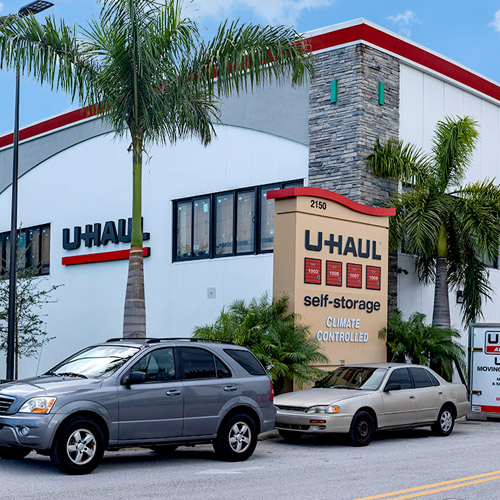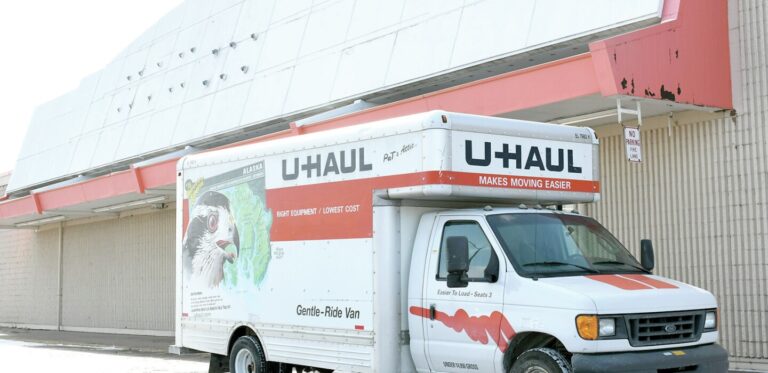U-Haul Propane: Your Comprehensive Guide to Refills, Tanks, and Safe Usage

U-Haul Propane: Your Comprehensive Guide to Refills, Tanks, and Safe Usage
Propane powers countless aspects of our daily lives, from firing up the backyard grill to providing heat for RV adventures and powering industrial equipment. When it comes to reliable, accessible, and cost-effective propane services, U-Haul stands out as a pervasive and trusted name. More than just a moving company, U-Haul has established itself as one of the largest retailers of propane in North America, offering a convenient and professional solution for all your propane needs. This comprehensive guide will delve into everything you need to know about U-Haul propane, ensuring you’re well-equipped to make informed decisions about your fuel supply.
Why Choose U-Haul for Propane? The Advantages Unpacked
The widespread presence of U-Haul locations makes their propane service incredibly convenient. But beyond sheer accessibility, there are several compelling reasons why customers consistently choose U-Haul for their propane requirements:
- Unmatched Convenience: With thousands of locations across the U.S. and Canada, a U-Haul propane filling station is often just around the corner. Many locations offer extended hours, making it easy to get a refill when you need it.
- Cost-Effectiveness: Unlike tank exchange programs where you pay for a full tank regardless of how much propane was left in your old one, U-Haul refills by the gallon or pound. This means you only pay for the propane you actually receive, often resulting in significant savings over time.
- Expert and Safe Service: U-Haul team members are professionally trained in propane safety and handling. They ensure your tank is inspected for visible damage and has a valid certification date before refilling, prioritizing your safety and adherence to regulations.
- Environmental Responsibility: Refilling your existing tank, rather than exchanging it for a new one every time, reduces the waste associated with discarding partially used or cosmetically damaged tanks. It’s a more sustainable choice.
- Versatility: U-Haul can refill a wide range of propane tanks, from small BBQ tanks to large RV tanks, forklift tanks, and even industrial cylinders, provided they meet safety standards.
Understanding Propane: The Fuel You’re Using
Propane, or Liquefied Petroleum Gas (LPG), is a clean-burning, efficient, and versatile fuel. It’s stored as a liquid under pressure and turns into a gas when released, making it an ideal portable energy source. While naturally odorless, a chemical called ethyl mercaptan is added to give it a distinct rotten-egg smell, serving as a crucial safety warning in case of a leak. Propane is heavier than air, meaning it will settle in low-lying areas if it leaks, which is an important consideration for storage and safety.
Common uses include:
- Grilling and outdoor cooking
- RV heating, cooking, and refrigeration
- Patio heaters and outdoor living
- Generators and power tools
- Forklifts and industrial equipment
- Temporary heating solutions
U-Haul Propane Services: Refills, Tank Sales, and More
U-Haul offers a comprehensive suite of propane-related services designed to meet diverse customer needs:
Propane Refills
This is U-Haul’s most popular propane service. Customers drive up with their empty or partially empty tanks, and a trained staff member handles the entire refilling process. This includes:
- Safety Inspection: A visual check of the tank for dents, rust, and a valid certification date.
- Proper Connection: Securely connecting the tank to the filling station.
- Accurate Filling: Dispensing propane by the gallon or pound, ensuring the tank is filled to the safe 80% capacity limit (to allow for thermal expansion).
- Leak Check: A final check to ensure there are no leaks before returning the tank.
U-Haul can refill a variety of tank sizes, including:
- 20 lb BBQ tanks
- 30 lb RV tanks
- 40 lb RV tanks
- 100 lb residential/commercial tanks
- On-board RV tanks
- Forklift cylinders
Propane Tank Sales
If you need a new tank, U-Haul also sells a range of new, certified propane cylinders. These tanks are ready for immediate use and come in various sizes, most commonly the 20 lb, 30 lb, 40 lb, and 100 lb capacities. Buying a new tank from U-Haul ensures you’re getting a quality, compliant product that will serve you reliably for years.
Propane Accessories
While not always prominently displayed, many U-Haul locations also stock essential propane accessories like hoses, regulators, and gauges, allowing you to get everything you need in one stop.
The How-To Guide: Getting Your Propane Refilled at U-Haul
Refilling your propane tank at U-Haul is a straightforward and efficient process. Here’s a step-by-step guide:
- Locate a U-Haul Propane Dealer: Use the U-Haul website or app’s "Propane" section. Input your location to find the nearest U-Haul store offering propane services and check their operating hours.
- Prepare Your Tank for Transport: Ensure the tank’s valve is securely closed. Transport the tank upright in a well-ventilated area of your vehicle (e.g., truck bed, open trailer). Never transport a propane tank inside the passenger compartment of a car or SUV. Secure it so it cannot tip over or roll around.
- Arrive at the Location: Follow the signs for propane filling. Some locations have a dedicated drive-up area. Park safely and alert a U-Haul team member that you need a propane refill.
- The Refill Process: A trained U-Haul employee will take your tank, inspect it, connect it to the filling station, and fill it to the safe 80% capacity. They will monitor the process and ensure all safety protocols are followed.
- Payment and Departure: Once filled, the employee will return your tank. You’ll pay for the amount of propane dispensed. Securely load your refilled tank back into your vehicle for safe transport home.
Important Considerations: Tank Certification Dates
All propane tanks (except those permanently mounted on RVs) have a certification date stamped on their collar. In the U.S., DOT (Department of Transportation) certified tanks are typically valid for 12 years from the manufacturing date, after which they can be visually inspected and recertified for 5 years at a time. In Canada, TC (Transport Canada) certified tanks often have a 10-year lifespan. U-Haul, by law, cannot refill an expired or visibly damaged tank. Always check your tank’s date before heading out to avoid disappointment.
Propane Tank Safety and Maintenance
Safety is paramount when dealing with propane. Following these guidelines will ensure a safe experience:
- Transportation: Always transport tanks upright and secured in an open, well-ventilated area (e.g., truck bed, open trailer). Never leave tanks in direct sunlight or a closed vehicle.
- Storage: Store tanks outdoors, in an upright position, on a firm surface, and away from direct sunlight, ignition sources, and entryways. Keep them away from children and pets.
- Handling: Handle tanks with care to avoid dropping or damaging them. Always keep valves closed when not in use.
- Leak Detection: If you suspect a leak (rotten egg smell), mix soapy water and apply it to the tank valve and connections. Bubbles indicate a leak. Immediately turn off the valve, move the tank to an open area, and contact emergency services or a propane professional.
- Overfill Protection Device (OPD): Modern tanks are equipped with an OPD valve, a safety feature that prevents overfilling. Ensure your tank has this triangle-shaped handwheel or a similar marking indicating an OPD.
U-Haul Propane Pricing: A Transparent Look
One of the significant advantages of U-Haul propane is its competitive pricing, especially when compared to tank exchange services. Because you only pay for the actual amount of propane dispensed (by the gallon or pound), you avoid paying for the residual propane left in an "empty" exchange tank.
Prices for propane can fluctuate based on market conditions and specific U-Haul locations. However, here’s a representative table for typical U-Haul propane services.
U-Haul Propane Services: Estimated Pricing Guide
| Tank Size (Approx. Lbs) | Approx. Gallons | Est. Refill Price Range (Per Gallon) | Est. Full Refill Price (Example 20lb Tank) | Est. New Tank Price Range (Empty) |
|---|---|---|---|---|
| 20 lb BBQ Tank | ~4.7 Gallons | $3.50 – $5.50 | $16.45 – $25.85 | $40 – $60 |
| 30 lb RV Tank | ~7.0 Gallons | $3.50 – $5.50 | $24.50 – $38.50 | $60 – $85 |
| 40 lb RV Tank | ~9.4 Gallons | $3.50 – $5.50 | $32.90 – $51.70 | $75 – $100 |
| 100 lb Residential | ~23.5 Gallons | $3.50 – $5.50 | $82.25 – $129.25 | $150 – $200 |
Disclaimer: All prices are estimates and can vary significantly by location, regional propane costs, and current promotions. It is always recommended to contact your local U-Haul center for the most accurate and up-to-date pricing.
Practical Advice and Actionable Insights:
- Check Your Tank’s Date: Before you leave home, quickly verify your tank’s certification date to avoid a wasted trip.
- Refill Early: Don’t wait until your tank is completely empty, especially if you have an important event planned. Refill when it’s still partially full to avoid last-minute rushes.
- Combine Errands: If you’re already out, consider swinging by U-Haul for a refill to save time and fuel.
- Ask About Promotions: Sometimes U-Haul locations run local promotions on propane, so it doesn’t hurt to ask!
- Consider Tank Ownership: If you frequently use propane, owning your tanks and refilling them is almost always more economical than consistently exchanging them.
Conclusion
U-Haul propane offers a compelling combination of convenience, cost-effectiveness, and safety that makes it a top choice for countless individuals and businesses. By understanding their services, knowing the refill process, and adhering to essential safety guidelines, you can ensure a reliable and secure propane supply for all your needs. Whether you’re grilling, camping, or powering essential equipment, U-Haul’s commitment to professional service and customer satisfaction makes them an indispensable partner in your propane journey. Empowered with this knowledge, you can confidently utilize U-Haul’s extensive network for all your propane requirements.
Frequently Asked Questions (FAQ) About U-Haul Propane
Q1: Can I refill any propane tank at U-Haul?
A1: U-Haul can refill most standard propane tanks (BBQ, RV, forklift, etc.) as long as they are in good condition, free from visible damage (dents, rust), and have a valid certification date (DOT or TC stamp). Tanks without an Overfill Protection Device (OPD) or with an expired certification cannot be refilled.
Q2: Do I have to buy a tank from U-Haul to get a refill?
A2: No, you do not. You can bring your own certified propane tank to any U-Haul location that offers propane services for a refill.
Q3: Is it cheaper to refill or exchange a propane tank?
A3: Generally, refilling your propane tank at U-Haul is more cost-effective than exchanging it. With refills, you only pay for the amount of propane dispensed, whereas with exchanges, you pay a flat fee for a "full" tank, regardless of how much was left in your old one.
Q4: How often do propane tanks need to be recertified?
A4: In the U.S., most DOT-certified tanks are valid for 12 years from the manufacturing date stamped on the collar. After 12 years, they can be visually inspected and recertified for an additional 5 years at a time. TC-certified tanks in Canada typically have a 10-year lifespan.
Q5: Can U-Haul refill my RV’s built-in propane tank?
A5: Yes, many U-Haul locations are equipped to refill permanently mounted RV propane tanks. Drive your RV to the propane filling station, and a trained team member will assist you.
Q6: What happens if my propane tank’s certification is expired or it’s damaged?
A6: U-Haul team members are prohibited from refilling expired or damaged tanks for safety reasons. In such cases, they may offer to sell you a new, certified tank.
Q7: How do I know how much propane is left in my tank?
A7: For smaller tanks, you can estimate by weight (an empty 20lb tank weighs about 17-18 lbs). Some tanks come with gauges, or you can purchase an external gauge that connects between the tank and your appliance. A common method is the "hot water test": pour hot water down the side of the tank; the metal will feel cooler below the propane level.
Q8: Can I leave my propane tank in my car while it’s being filled?
A8: Absolutely not. For safety, you must remove the propane tank from your vehicle and place it at the designated filling area or hand it to the U-Haul team member. Never leave a tank in a closed vehicle, especially on a hot day.



